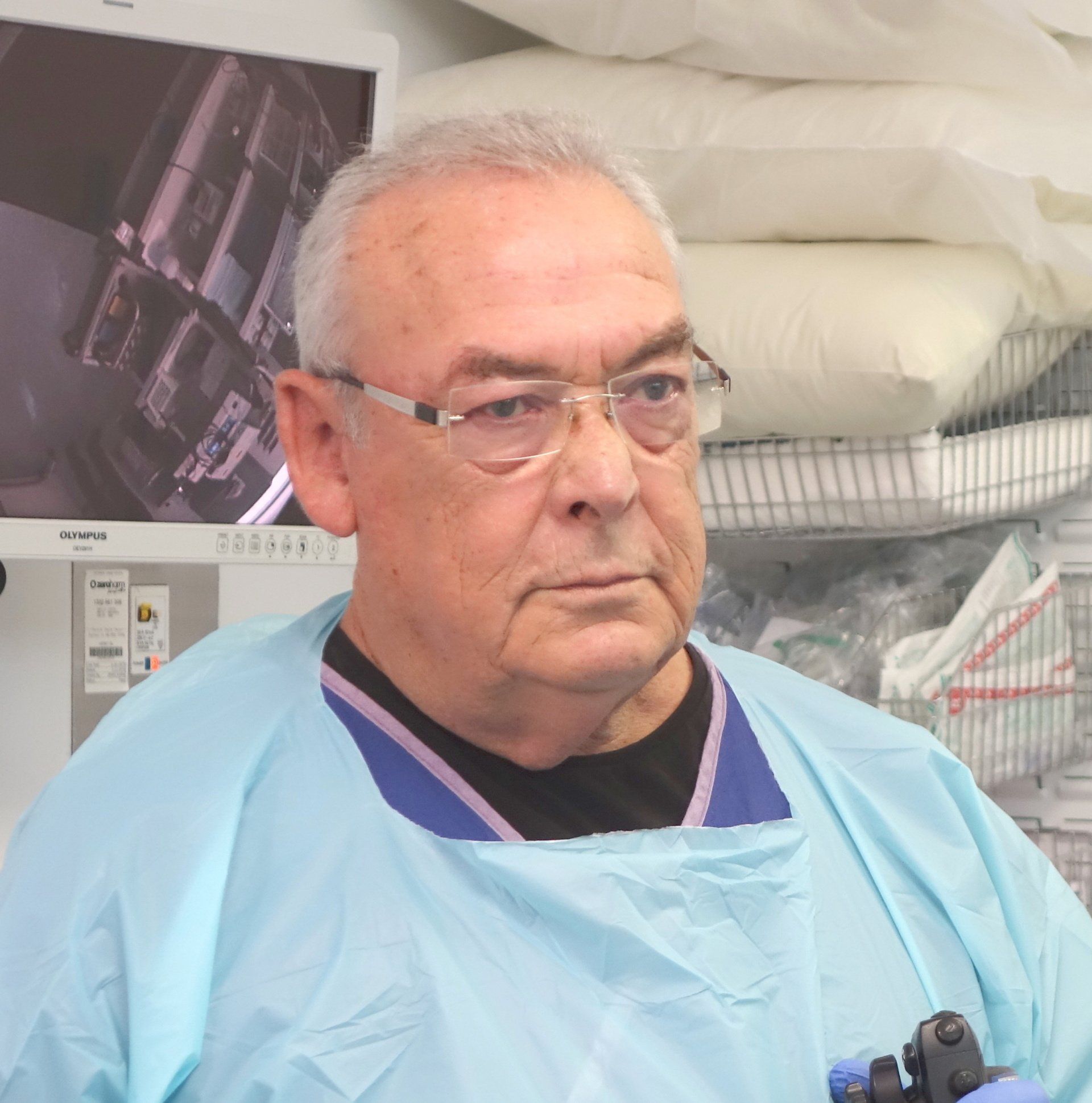Crohn’s Disease
What is Crohn’s Disease?
Crohn’s disease is a condition of chronic inflammation potentially involving entire digestive or gastrointestinal tract. Often however it affects the end of the small bowel and the beginning of the large bowel.
In Crohn's disease, all layers of the intestine may be involved and there can be normal healthy bowel between patches of diseased bowel.
Crohn’s disease is a lifelong disorder but with treatment, the symptoms can be controlled and disease can also be sent into remission.
The disease causes transmural granulomatous intestinal inflammation with skip lesions in the digestive tract. It can be very debilitating.
Who does Crohn’s Disease Affect?
Crohn’s disease usually typically presents itself between 20 to 40 years of age and affects both men and women equally.
It is three times more likely to affect smokers than non-smokers. Prevalence of the disease is 100-200/100,000 people with an incidence of 10-20/100,000 every year.
How does Crohn’s Disease Occur?
Crohn’s disease is caused due to an abnormal response from the immune system in certain individuals with pre-existing genetic susceptibility.
It occurs when the activated immune system that is fighting a bacterial or viral infection, also begins attacking the normal colonic flora and intestinal cells as well, resulting in inflammation.
Causes of Crohn’s Disease
While the precise cause remains unknown, a possible cause is an inappropriate response from the activated immune system of a genetically susceptible individual.
Symptoms of Crohn’s Disease
Commonly sufferers of Crohn’s disease observe
- Persistent diarrhea (loose, watery, or frequent bowel movements)
- Cramping abdominal pain
- Fever
- Rectal bleeding (at times)
- Loss of appetite and weight loss.
- Fatigue
- Symptoms can also affect the Joints, eyes, skin, and liver
The most common complication of Crohn’s disease is blockage of the intestine due to swelling and scar tissue.
Symptoms of blockage include cramping pain, vomiting, and bloating. Another complication is sores or ulcers within the intestinal tract. Sometimes these deep ulcers turn into tracts—called fistulas.
Crohn's Disease patients have an increased risk of colon cancer.
Types of Crohn’s Disease
Crohn’s disease can be further classified into five types based on the affected segment of the digestive tract. These types are:
- Ileocolitis
– It is the most common time and affects both the ileum (small intestine) and the colon (large intestine).
- Ileitis
– Only the ileum is affected.
- Gastroduodenal Crohn’s Disease
– The inflammation affects the stomach and duodenal segments.
- Jejunoileitis
– The jejunal region of the small intestine is affected.
- Crohn’s Colitis – Only the colon is affected, with rectal bleeding and perianal involvement.
Stages of Crohn’s Disease
Crohn’s disease can be staged into mild, moderate and severe categories based on the severity of inflammation and systemic symptoms.
How is Crohn’s Disease Diagnosed?
The doctor begins by taking a complete history and a thorough physical examination. To confirm the diagnosis, the doctor may run the following tests:
- Blood tests to identify associated anemia and nutritional deficits
- Stool culture to rule out any bacterial infection such as Campylobacter, C. difficile, Salmonella, Shigella, E. coli and amoebae.
- Fecal Calprotectin test, to identify intestinal inflammation.
- Capsule Endoscopy and MRI is used to identify small bowel involvement and inflammation
- Colonoscopy procedure to collect tissue samples and visually examine the intestines for inflammation
Treatment of Crohn’s Disease
The aim of treatment is to control symptoms and improve quality of life for the patient. Lifestyle changes such as cessation of smoking are important for control.
Treatment options include:
- Medications
- Because Inflammatory Bowel Disease is a chronic condition, many people will need to take medications for long periods of time, either to bring the disease under control or to maintain remission once the symptoms have disappeared.
- Surgery
- At the point when medications can no longer control the symptoms surgery may be the best option to achieve a healthier and more active lifestyle.
The doctor decides the best approach on a case by case basis and the severity of the symptoms.
Lifestyle changes include:
- limiting the intake of dairy products,
- spicy foods, and
- fibre.
It is also recommended to reduce stress because it can exacerbate the symptoms in an inflamed bowel. This is achieved by exercise and regular practice of breathing exercises.
In drug therapy, the doctor may have to try different medications before one that works for the patient. Some of the drugs used include:
- Anti-inflammatory drugs such as corticosteroids and Amino-salicylates. These are considered the first choice for treatment.
- Immunosuppressant drugs such as Infliximab, Cyclosporine and others are prescribed when steroids are ineffective. These drugs suppress the body’s immune system, which also reduces inflammation.
- The doctor may also prescribe Anti-biotics, pain killers and nutritional supplements if he decides they are needed.
The surgical option for treating Crohn’s disease involves removing the affected segments of the intestine and closing any fistulas that may be present. Medication is needed to reduce recurrence risk after surgery.
Surgery for Crohn’s Disease
While surgery is not a cure for Crohn's disease it should enable patients to eat and drink without pain and also stop taking Crohn's drugs.
Surgery for Crohn's disease involves the removal of the diseased bowel. The majority of long term Crohn's disease sufferers resolve their condition with surgery.
While symptoms may recur over time and many patients can require a second procedure, this typically will lead to a long term solution.
What if Crohn’s Disease is Untreated?
Crohn’s disease can be very debilitating if left untreated. Some of the complications include small bowel obstruction, abscess and fistula formation as well as colon perforation.
The patients are also at a higher risk of developing colonic cancer. The patients experience poor quality of life due to constant fatigue, weakness and abnormal bowel movements.
Dr Donald Walker
Write your caption hereMore
Dr Johan Van Den Bogaerde
Write your caption hereMore
Trusted for more than 25 Years
PANCREAS & BILIARY
Digestion Problems - Dyspepsia









